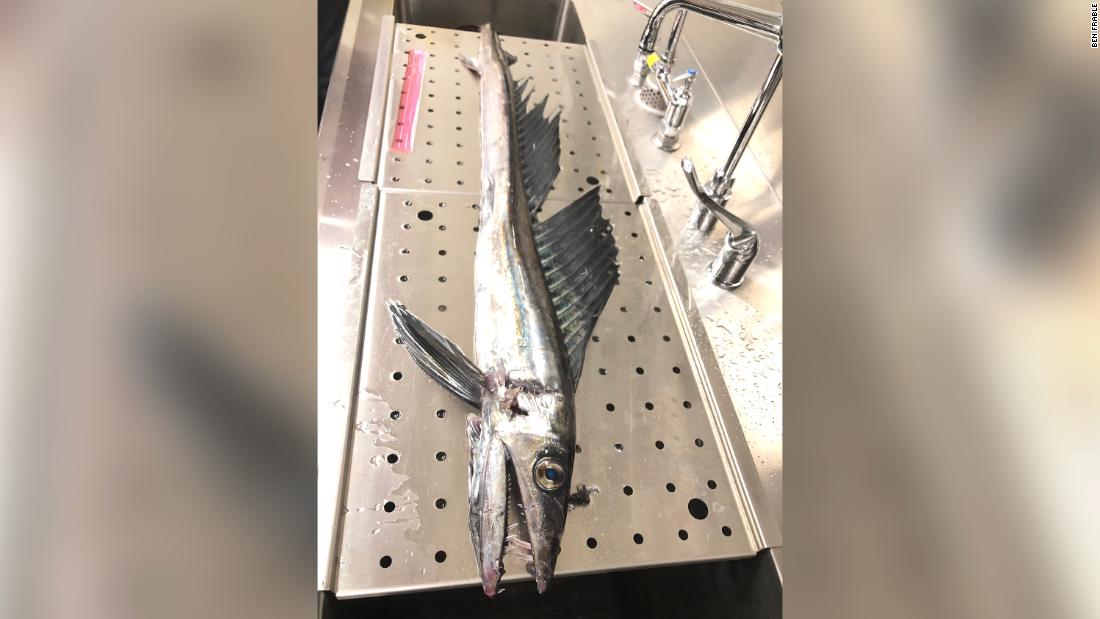Hybrid species of puffer fish 0:28
(CNN) -
Bathers discovered a 1.20-meter lancet fish washed up near the Scripps Institution of Oceanography at the University of California, San Diego on Tuesday.
Although not particularly rare, the researchers noted that it was the first lancet fish observed by the institution since 1996, and only 17 found on a San Diego beach since 1947.
The find comes just a week after a Pacific puffer fish, a deep-sea monkfish much rarer than lancet fish, appeared about three miles away on Black's Beach.
The fish, whose name in the catalog is SIO 21-37, is the latest addition to SIO's vertebrate collection.
Manager Ben Frable told CNN that the fish was found alive in La Jolla Shores, but that it did not survive on land.
The lancet fish was found on a San Diego beach.
It measures about 1.20 meters
It had been "bombarded by seagulls," according to Frable.
However, SIO 21-37 will be preserved for possibly hundreds of years.
Frable suspects that the fish may have landed on the beach for a number of reasons, such as running away from a predator or getting caught in a current and not being strong enough to swim.
advertising
Lancetfish are known for their huge eyes, fanged jaws and a slick body, according to the National Oceanic and Atmospheric Administration.
Lancet fish, which are hermaphrodites, animals with both reproductive organs, are notorious cannibals that also feed on other fish and invertebrates.
Fish can grow to over 2 meters long and barely digest their food.
But Frable confirms that cannibalism is not taboo in the fish world as it seems.
"So they have quite a varied diet, but other lancetfish seem to be quite popular. But what's really interesting is that other lancetfish don't show up in their diet until the fish are around 0.9 cm long," he said.
Frable said little is known about the lancetfish and this particular behavior, as they are not easily observed at lower depths, even though they are found in all the world's oceans.
The lab took tissue samples that could be used to determine genetics and other data.
"From a research perspective, lancetfish help provide a window into the open ocean food web," said Frable.
"So it's very important to be able to learn more about how nitrogen and carbon move in the open ocean and what that could mean for interactions on a global scale."

